IPE/BC is an independent, non-partisan organization, however we recognize that IPE/BC Fellows and guest authors hold a range of views and interests relative to public schools, education issues, and the political landscape in BC. Perspectives is an opportunity for Fellows and others to share their ideas in short, accessible essays.
Let’s Make Education an Election Issue!
By Patti Bacchus
September 24, 2024
Here we go again. My inbox is filling up with urgent pleas from B.C.’s political parties (well, mainly one of them in my case), wanting my money, my time, and space on my lawn for a sign.
As we head to the polls in just a few weeks, we’re hearing a lot of inflammatory rhetoric as the campaign kicks off, but not much about education. This needs to change.
Public education is the cornerstone of democracy and the solution to many of the most challenging problems we face, including those issues party leaders are discussing in the news media: crime, homelessness, addictions, mental health, and inequality. These are all downstream effects of children not getting their needs appropriately met in their early years.
Whether you have kids in school or not, education should be a priority as you head to the polls and consider donating to a campaign.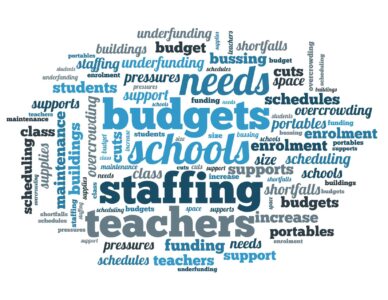
Don’t get me wrong: We have an excellent public education system, but it’s chronically underfunded. Those working on its front lines have been warning us for years that they can’t achieve the best outcomes in overcrowded classrooms without adequate support and staffing in poorly maintained buildings.
We have an urgent teacher shortage that is stressing the system, shortchanging students, and causing those working within it to consider leaving, risking the problem getting worse.
Many of our schools are aging, inadequate, and seismically unsafe. In some communities, families have to enter lotteries to get their kids into neighbourhood schools because governments have failed to adequately fund school construction and seismic upgrades.
We’re seeing record levels of public funds being diverted to private schools—over $570 million in direct annual provincial funding grants alone, along with various tax exemptions and deductions. This diverts money from the public treasury that could otherwise fund public schools.
According to Statistics Canada, B.C. now spends less of its Gross Provincial Product (GPP) on K-12 education than every other province except Newfoundland and Labrador, causing public school boards to cut programs and staffing and struggle to meet the needs of diverse student populations.
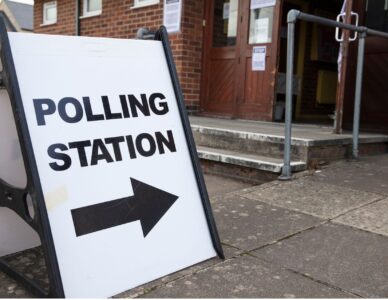
The provincial election is an opportunity to push parties and candidates on what they’ll do for our public education system and hold them accountable for what they haven’t done.
There’s still a backlog of major school seismic-upgrade or replacement projects waiting for funding. Kids are still coerced into writing the FSAs (even though teachers say they have little value and actually cause some harm). B.C. still lags behind most other provinces in per-student funding.
B.C. teachers’ salaries are still lower than many of their Canadian counterparts. Surrey still has far too many portables, and Vancouver families in many parts of the city have to enter lotteries to get their kids into neighbourhood schools—if, unlike those who live in the Olympic Village, their community actually has a school. And as we’ve seen repeatedly, when seismic upgrades or replacements finally get funded, the money is not adequate, and the schools end up too small.
Support for students with special needs is uneven and too often, inadequate, and kids still get sent home and miss school due to a lack of support.
Parents still fundraise for basics, and teachers still buy resources for their classrooms with their own money.
 It’s time to let parties and candidates know what you want to see if they want your vote, donation, or volunteer time. If they want to put a sign in your window or on your lawn, demand to know what they’re committing to for public education. I’ll be letting my candidates know that having among the lowest per-student funding in Canada doesn’t cut it. I want to know when they’re going to complete all outstanding school seismic upgrades.
It’s time to let parties and candidates know what you want to see if they want your vote, donation, or volunteer time. If they want to put a sign in your window or on your lawn, demand to know what they’re committing to for public education. I’ll be letting my candidates know that having among the lowest per-student funding in Canada doesn’t cut it. I want to know when they’re going to complete all outstanding school seismic upgrades.
The IPE/BC has prepared some questions for parties and candidates. Feel free to use them to ask your candidates questions to ensure they know that education is indeed an issue that matters to voters.
IPE Questions for Candidates:
1. Funding: B.C. has fallen behind the rest of Canada in how it funds its public schools. The only province that spends less of its GDP on education is Newfoundland and Labrador. B.C.’s relative contribution to public school budgets has fallen significantly from 2000 to the present, considering what the province can afford.
For the 2023/24 school financial year, B.C. reports spending grants of $6,754 million across the province’s 60 school districts. If B.C. were to spend at the “% of GPP” rate found in the year 2000, this budgetary allocation would increase by $3.8 billion to $10.552 billion.
What will you do to increase funding to B.C.’s public schools to ensure students receive the opportunities and supports their counterparts in other provinces are able to access?
2. Staffing: B.C. schools are struggling with an urgent shortage of qualified teachers and special education support workers. This is shortchanging students and putting increased stress on school employees, making it difficult to retain them.
What will you do to recruit and retain teachers and education support workers?
3. Facilities: The Ministry of Education is forecasting significant enrolment growth in B.C.’s public schools, yet many districts already have overcrowded schools and not enough space for all in-catchment students. Hundreds of B.C. schools are still at high risk of significant structural damage in the event of an earthquake.
How would you ensure B.C.’s students have access to safe, neighborhood schools, in a timely way?
4. Reconciliation: Historically and statistically, Indigenous students have had poorer outcomes in school due to Canada’s history of colonialism, discrimination, and, in particular, residential schools.
What will you do to ensure Indigenous students receive educational opportunities and supports to enable their success in B.C.’s public schools?
5. Inclusion and Safety: Ensuring that schools are inclusive and safe environments is crucial for the well-being and success of all students. Programs that support students’ understanding of sexual orientation, gender identify and anti-discrimination are essential in fostering a respectful and welcoming school culture.
How will you ensure schools are safe, inclusive, and welcoming for all students, and how will you support and protect programs that educate and support students regarding sexual orientation and gender identity (SOGI) and other anti-discriminatory programs and practices?
See you at the polling station!
Patti Bacchus is a public education advocate, commentator, and IPE/BC Board member, who was also the Vancouver School Board’s longest-serving chair, from 2008-2014. She has also served on the Board of the Broadbent Institute. Patti has written extensively about public education issues in the Georgia Straight. She believes that a strong and well-resourced public education system is key to a healthy and just society.
 Here’s an idea: Let’s use unpaid labour in the form of captive public-school kids and their overworked, underpaid teachers, and heck, we can even make them compete for the privilege!
Here’s an idea: Let’s use unpaid labour in the form of captive public-school kids and their overworked, underpaid teachers, and heck, we can even make them compete for the privilege!
 As a former Vancouver school trustee and its longest serving chairperson, I’m opposed to private businesses using schools to polish their public images. If they want to support schools, they can make a donation to the school district without requiring students and teachers to be part of their marketing programs.
As a former Vancouver school trustee and its longest serving chairperson, I’m opposed to private businesses using schools to polish their public images. If they want to support schools, they can make a donation to the school district without requiring students and teachers to be part of their marketing programs.

 It’s time to let parties and candidates know what you want to see if they want your vote, donation, or volunteer time. If they want to put a sign in your window or on your lawn, demand to know what they’re committing to for public education. I’ll be letting my candidates know that having among the lowest per-student funding in Canada doesn’t cut it. I want to know when they’re going to complete all outstanding school seismic upgrades.
It’s time to let parties and candidates know what you want to see if they want your vote, donation, or volunteer time. If they want to put a sign in your window or on your lawn, demand to know what they’re committing to for public education. I’ll be letting my candidates know that having among the lowest per-student funding in Canada doesn’t cut it. I want to know when they’re going to complete all outstanding school seismic upgrades.

 During the campaign period, IPE/BC sent a set of questions on education issues to the candidates in every BC electoral district. The questions, which remain relevant and reflect our institute’s perspectives on the needs of public education, are included here for your interest, as are the replies we received from candidates and parties.
During the campaign period, IPE/BC sent a set of questions on education issues to the candidates in every BC electoral district. The questions, which remain relevant and reflect our institute’s perspectives on the needs of public education, are included here for your interest, as are the replies we received from candidates and parties. school land deemed ‘surplus.’ The BC Liberals closed 267 schools during their tenure, and K-12 funding fell to all-time lows. They also created a program (that still exists) to sell property deemed ‘surplus.’
school land deemed ‘surplus.’ The BC Liberals closed 267 schools during their tenure, and K-12 funding fell to all-time lows. They also created a program (that still exists) to sell property deemed ‘surplus.’ The trouble of course is that much of this land isn’t really surplus and is almost always needed in the future. With the ever-upward march of land values, school properties that are sold are gone forever- unattainable and unaffordable when needed back. Where land values are highest, the pressure to sell land is greatest, and the public has the greatest amount to lose in this folly. In Vancouver, the site of the current Wall centre, worth likely hundreds of millions, was formerly the site of a school.
The trouble of course is that much of this land isn’t really surplus and is almost always needed in the future. With the ever-upward march of land values, school properties that are sold are gone forever- unattainable and unaffordable when needed back. Where land values are highest, the pressure to sell land is greatest, and the public has the greatest amount to lose in this folly. In Vancouver, the site of the current Wall centre, worth likely hundreds of millions, was formerly the site of a school.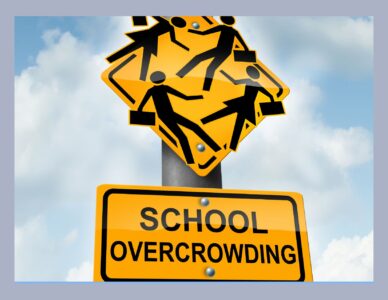 In Surrey district, where the population of school-aged children is exploding, the lack of land set aside for new schools is felt keenly as the district packs more and more students into existing schools – many in portable buildings. In Vancouver, where land values are high, schools are in poor repair and some buildings have excess capacity, largely created by the lack of family housing stock in the city, something likely to change in the future as the calls for increased density come from all political camps. North Vancouver district closed and sold many elementary schools during the last twenty years and parents in the district are now desperate for spaces as the density of school-aged children increases past capacity and projections.
In Surrey district, where the population of school-aged children is exploding, the lack of land set aside for new schools is felt keenly as the district packs more and more students into existing schools – many in portable buildings. In Vancouver, where land values are high, schools are in poor repair and some buildings have excess capacity, largely created by the lack of family housing stock in the city, something likely to change in the future as the calls for increased density come from all political camps. North Vancouver district closed and sold many elementary schools during the last twenty years and parents in the district are now desperate for spaces as the density of school-aged children increases past capacity and projections.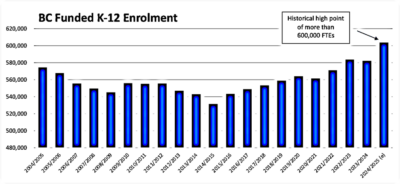
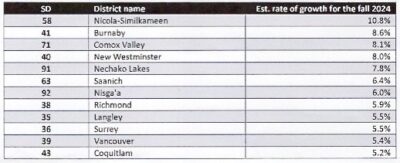
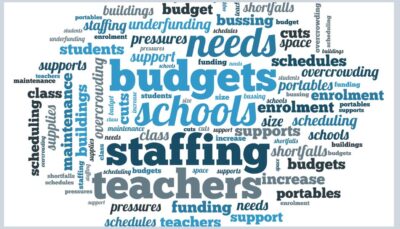
 that provincial law meant that fees could not be charged. The court case was successful in 2006.
that provincial law meant that fees could not be charged. The court case was successful in 2006. “shall consult with appropriate teachers, staff, staff committee, students and the Parents’ Advisory Council prior to establish the fee.” Do you recall that consultation last school year?
“shall consult with appropriate teachers, staff, staff committee, students and the Parents’ Advisory Council prior to establish the fee.” Do you recall that consultation last school year? financial hardship and how the waiver can be obtained. The policy is supposed to be fair, consistent and confidential. You can find how your district provides this in the district policy or ask the school principal.
financial hardship and how the waiver can be obtained. The policy is supposed to be fair, consistent and confidential. You can find how your district provides this in the district policy or ask the school principal.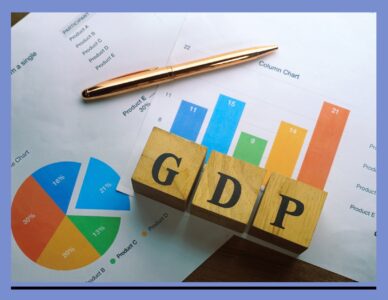 The NATO-induced commitment is not something prescribed by law. Nor is it a treaty commitment. It is a political deal hashed out within a supranational military organization that hasn’t been elected by anyone. It is very telling that when the Prime Minister announced his recent 2% timetable, it was not done in parliament, or even within Canada – it was done in a European forum in front of politicians, bureaucrats, generals and defense pundits – and covered by a mainstream media that increasingly functions as echo chamber for military-industrial interests. This is the group calling the defense spending shots and the group Canada has decided to answer to.
The NATO-induced commitment is not something prescribed by law. Nor is it a treaty commitment. It is a political deal hashed out within a supranational military organization that hasn’t been elected by anyone. It is very telling that when the Prime Minister announced his recent 2% timetable, it was not done in parliament, or even within Canada – it was done in a European forum in front of politicians, bureaucrats, generals and defense pundits – and covered by a mainstream media that increasingly functions as echo chamber for military-industrial interests. This is the group calling the defense spending shots and the group Canada has decided to answer to.
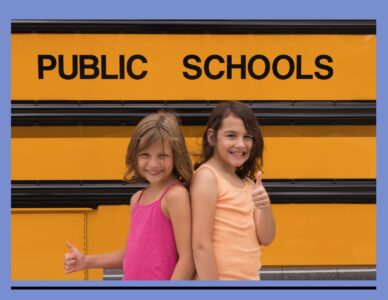 resource shortage and funding insecurity?
resource shortage and funding insecurity?